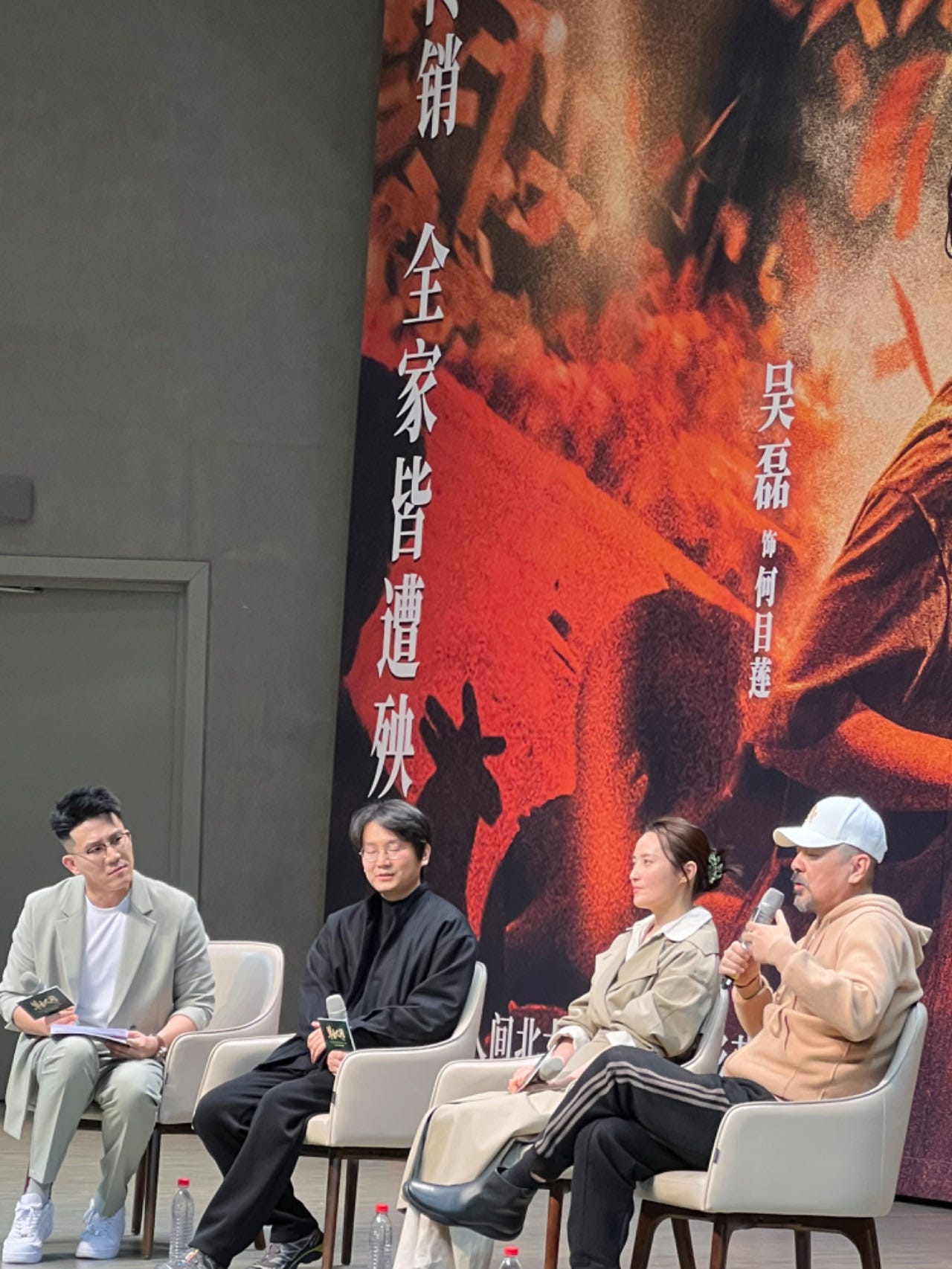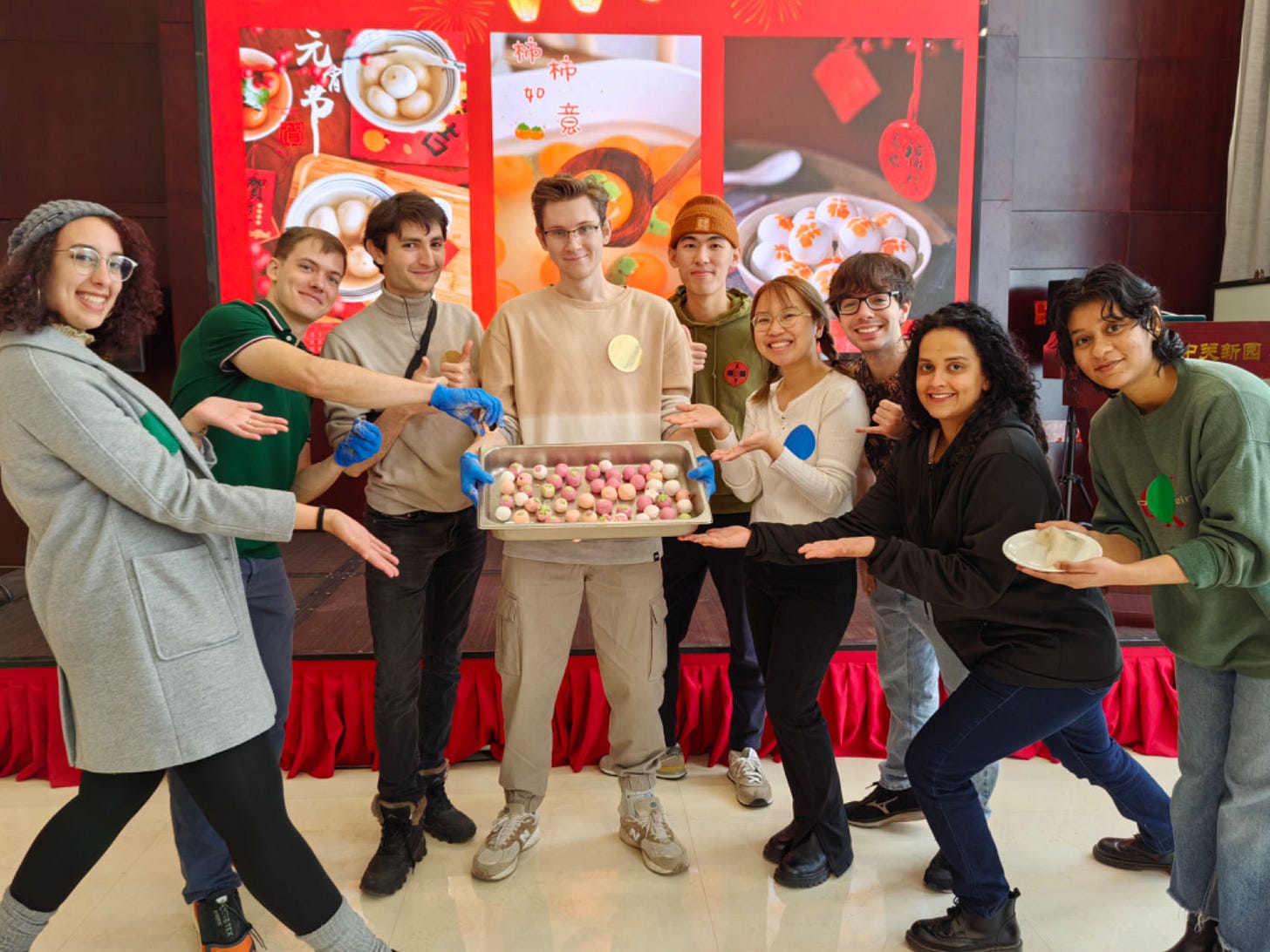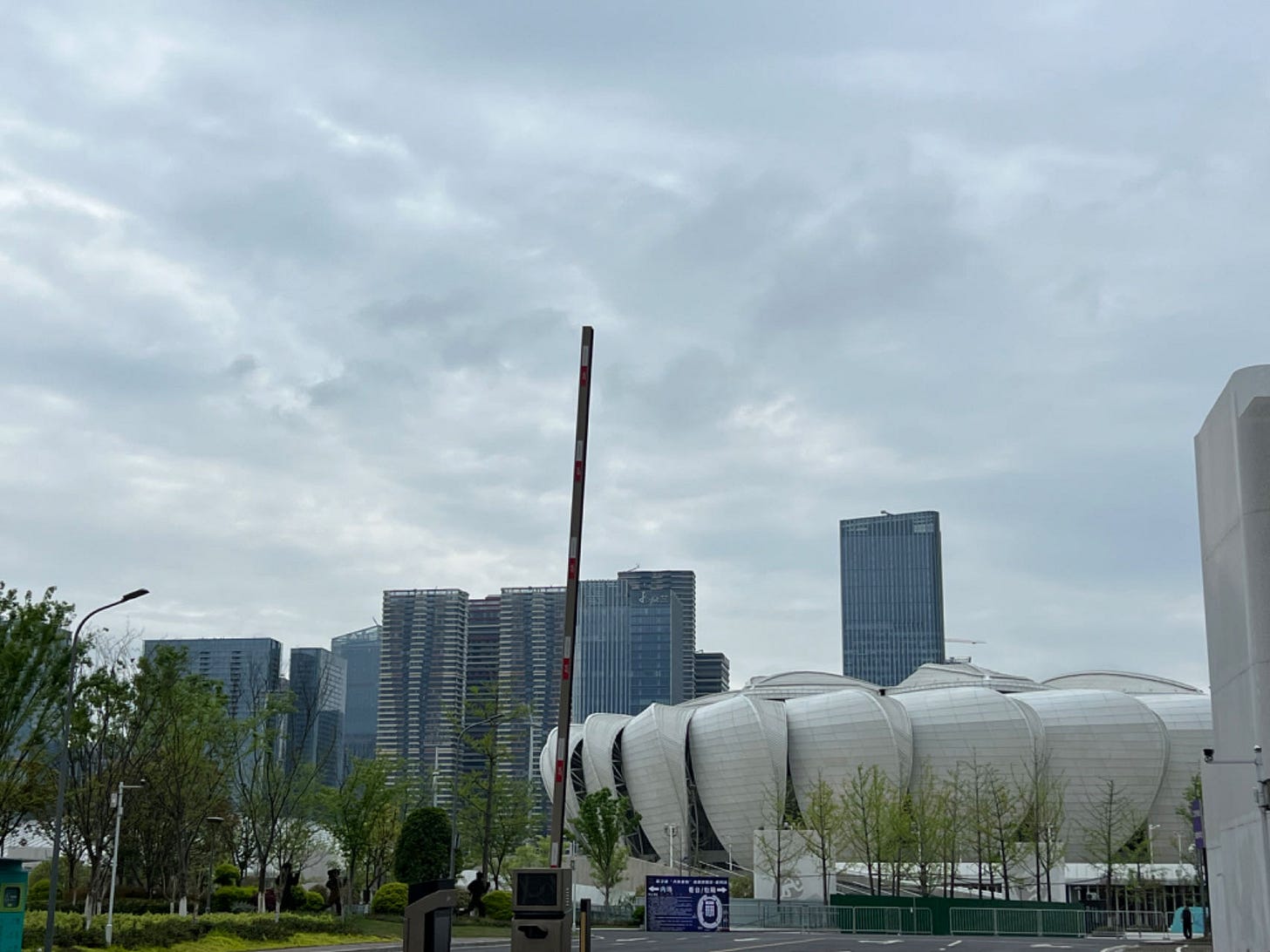College in Beijing really be chasing celebrities, visiting party officials, and celebrating non-Western holidays
How are we almost done with a school year in Beijing?
Hey folks,
Happy spring! I’m writing this post from a flight that took off from Hangzhou International Airport, where the weather is lovely and the city’s West Lake even prettier. It’s been a few months since the craze of Chinese New Year, and now we’re getting to the Tomb Sweeping Festival, a tradition common in the Southern parts of China where families visit mountains and worship ancestors. Yenching Academy, the name of my program, gave us the week off to do a field study in the Shanghai and Hangzhou regions, and I’m taking the time to hop to Guangdong Province, where I’ll see my dad and extended family.
Some life updates
The transition back to Beijing after time spent back home and other parts of China was strange. Beijing is polluted, despite government amends to clean the air, and every time I leave the capital, I remember that fresh air and blue clouds exist outside. This semester, I’m hoping to integrate into the rest of the Peking University campus more, in part to meet local Chinese students who uplifted themselves from other provinces through the harrowing national exam. I’ve signed up for a few too many sports – six and counting – though the practices are flexible, and a combination of activities like MMA kickboxing, Taekwondo, and tennis has shown me how fun it is to attend school on a campus with 40,000 students and athletic facilities of all sorts. Also, I’m convinced that there’s no better place to learn badminton and ping pong than in China, and I find it slightly embarrassing when “beginner” ping pong at Peking University means they probably won some tournament already.
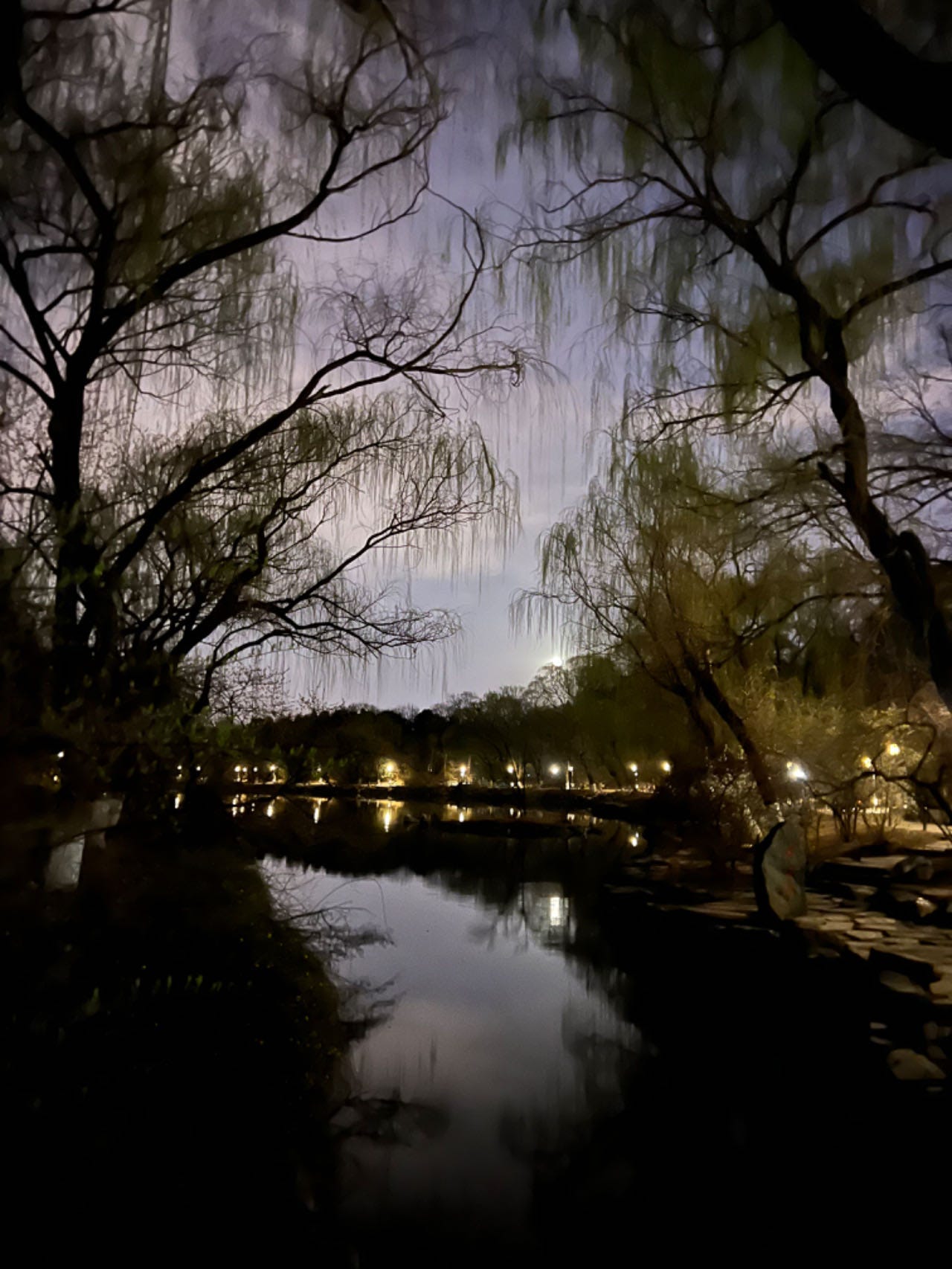
The semester is flying by, and this past year seems like one of the fastest I’ve had in my life. I’ve learned much about living with people from different nationalities, and I have more to learn about the balance between being Chinese and American, especially at a time when international relations suck between the two countries. I’m aware that legal and business infrastructures are breaking between the two countries as we speak, and I worry about the prospect of U.S.-China trade shortly or the return to a Red scare, if it’s not already happening. Yet at some points, I still see an admiration among local Chinese people for the developed economy of the U.S., and the U.S. has much to learn from China’s ability to protect basic safety. Despite the surveillance through AI facial recognition machines and cameras, I’ve felt remarkably safe, at all times of the day, in China, and can see why physical safety alone can improve my standard of living. Never having to worry about homeless people in the subways or crazy folks bothering you on the streets means that life can not only be fun but also peaceful.
I’ve stayed busy working on an international conference, Yenching Global Symposium, held on our campus. The 10,000 applications we received for 100 spots showed us just how badly and curious people were about the reopening of China, and I consider it a strange but privileged time to live as an American student in China. Sometimes, I wonder if I’ll look back on this period and consider myself similar to the American students who visited China after the country reopened in the 1970s. In parallel ways, I arrived on Chinese soil once the country reopened fully after COVID, but the demand to study in China from foreign students remains low.
In the months ahead, I’m looking forward to the 10th anniversary of the Yenching Academy. We exist as a strange international fellowship on the campus grounds of Peking University, an institution where students claw their way from the national exam system. I’ve spent a lot of time thinking about the privilege that I have to be at this school, given that my U.S. citizenship got me in through the backdoor, and no matter how much people dislike a “foreign academy for international students who got into Peking easily,” which unfortunately is a schoolwide sentiment, I’m making the most of my time. I’d be curious to see if Yenching Academy would still be around in a few years, and word has it that the Chinese government wants to create similar fully-funded fellowship programs at other Beijing universities to get more American students to China.
In July, I will volunteer as part of a teacher mission trip to teach in a remote school in Shandong Province. I ended up in this gig through a confluence of random activities, and I laughed hard the day that I was congratulated for being vice-captain of the initiative, which I didn’t realize until after the interview. But I’m excited to see children who will take non-academic classes from our group of 15 Peking University students, and I truly believe that my eyes will be opened when I see the conditions of remote schools, sometimes with students who never aspire to go far for education, mostly because their living conditions have confined their imagination.
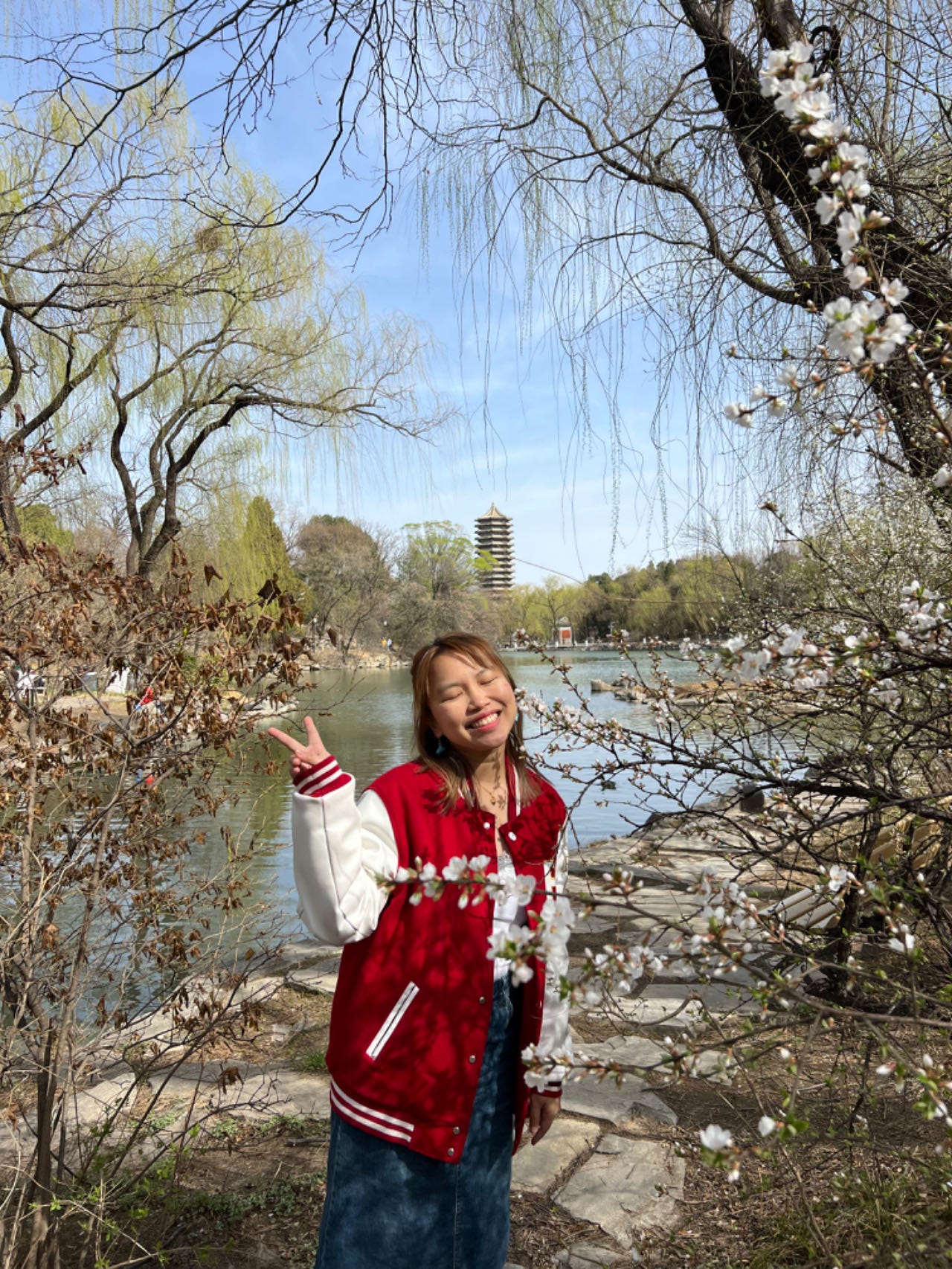
In a few weeks, I’ll visit the Gansu province near Tibet and see more ethnic communities around China. I have yet to hit Tibet and Xinjiang, both of which are reachable despite my U.S. citizenship, though I have plans to visit both locations before I dip from China. It’s fascinating to be reminded that China exists beyond Shanghai, Beijing, and Hong Kong, and that minorities and cultural differences exist on the outskirts of the country, often requiring us to live in desert tents and sing songs that aren’t Mandarin.
One final note
I’ve gotten a lot of questions from people asking if I suffer from surveillance and the burdens of an authoritarian state. Honestly, I’ve felt fine — wonderfully, completely fine. I have an advantage in speaking native Mandarin, but I’ve never been more thankful that surveillance exists because I chuck my wallets on university canteen tables without worrying that people will steal them. When I go to the subway, I know that the security by the turn styles will decrease the likelihood of crazy folks causing chaos. And while government propaganda exists, there are 1.4 billion people in this country with 1.4 different personalities, and it’s honestly hard to assume that everyone will worship the Communist Party. I’ve met plenty of people who constructively criticize the government, and I’ve found it interesting that people aspire to work in the government. Unlike the U.S., where you ridicule politicians left and right, it’s considered honorable to be a public civilian, and in my humble opinion, America has much to learn from China on this. The U.S. is the land of the free, and China isn’t. But China is much safer where the U.S. isn’t, and China’s takeout deliveries arrive within 20 minutes with no tip or tax. Life is a million times more convenient in China, but ideologically, we’re more free to express and think in the U.S. I guess we win some, and we lose some, but I’m here to tell people that no country is “better” than the other. China and the U.S. have much to learn from each other, and as a Chinese American, I have much to learn from both.
Warmly,
A person flabbergasted by the Tomb Sweeping Festival rituals that take place to honor generations of Wen family ancestors




